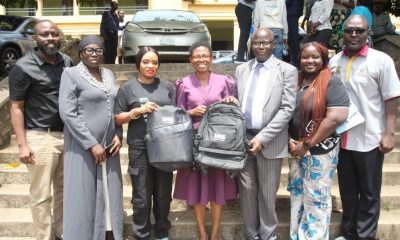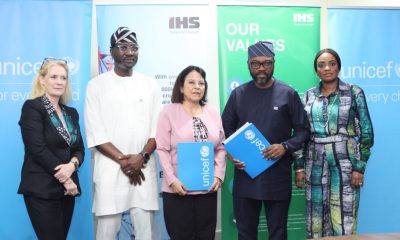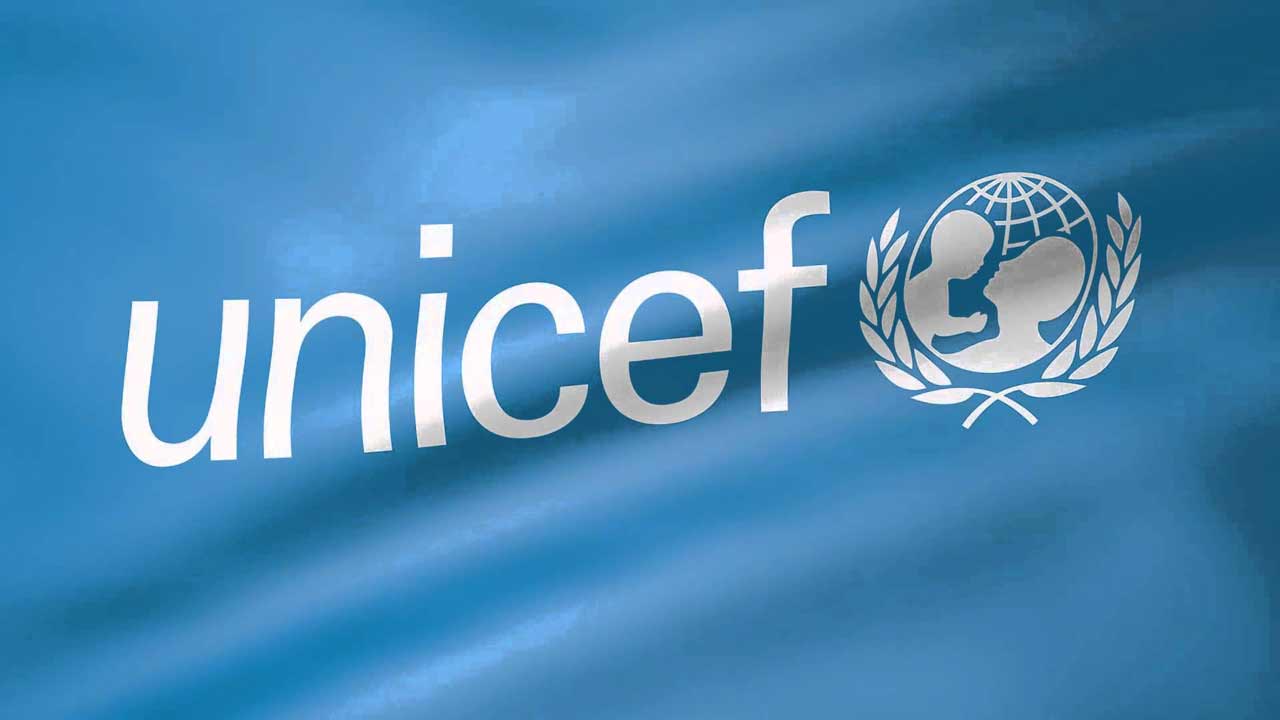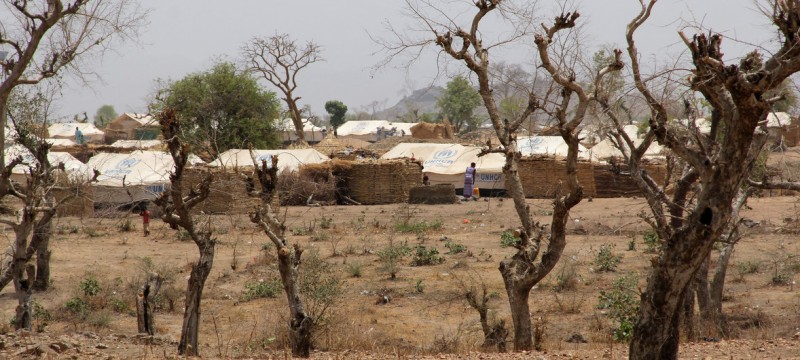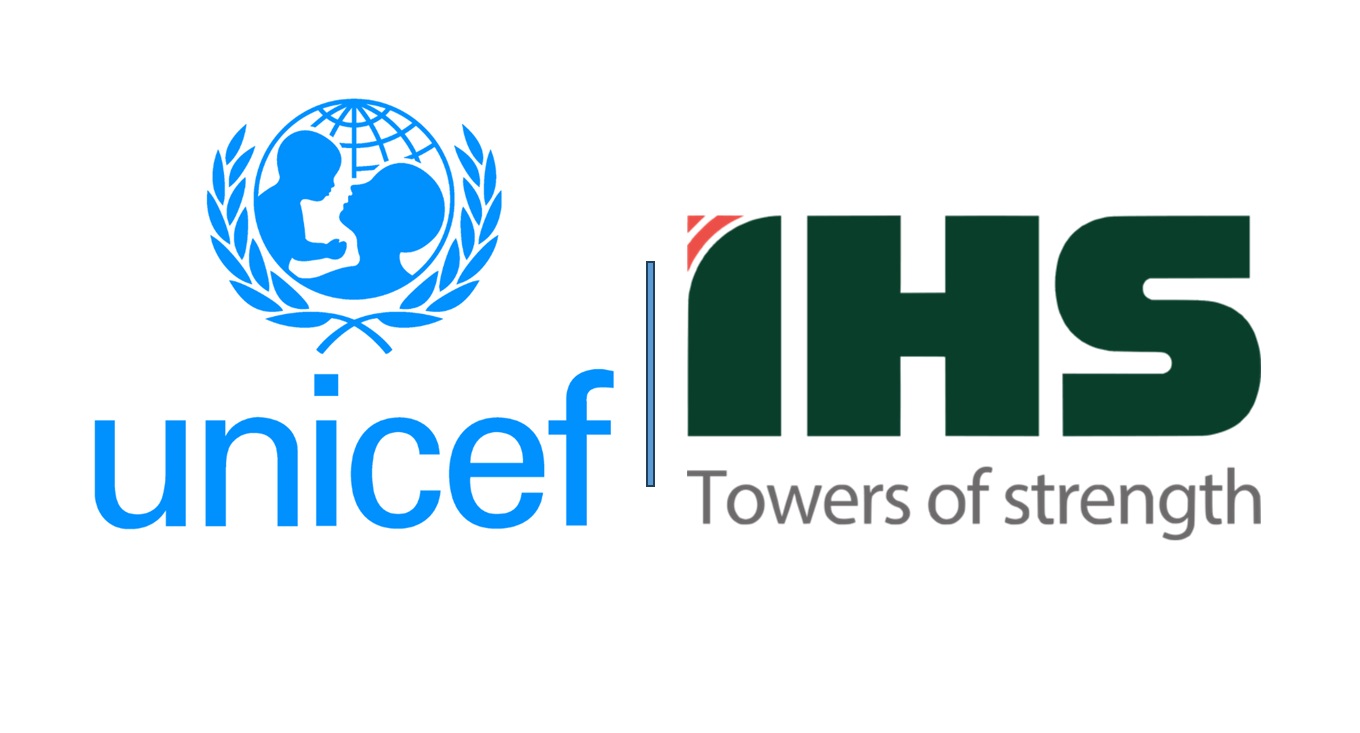General
We’ve Spent $20m On 120,000 Families In North-East Nigeria—UNICEF
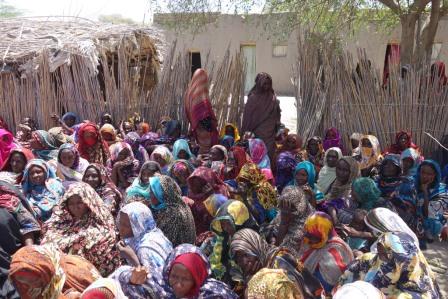
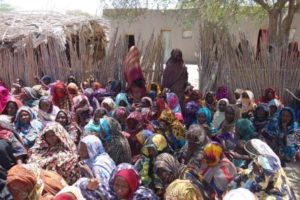
By Modupe Gbadeyanka
Over 120,000 families in conflict-hit northeast Nigeria have been reached so-far with food and nutrition support in a $20 million (£16.1m) multi-year joint project funded by the UK Department for International Development (DFID), the United Nations Children’s Fund (UNICEF) has disclosed.
UNICEF further disclosed that it was working together with the World Food Programme (WFP) and Action Against Hunger (AAH) to give families in Borno and Yobe States greater access to food and to protect children from malnutrition
It estimated that more than 4.4 million people are struggling in crisis and emergency food security levels in the two states, worst-hit by the Boko Haram conflict.
“We are building a system not only to treat children for malnutrition, but to help families who have been devastated by the conflict to prevent their children from becoming malnourished in the future”, said Mohamed Fall, UNICEF Representative in Nigeria said in a statement.
It explained that the three-year project is being carried out in collaboration with the primary health-care agencies of the government of Nigeria and Borno and Yobe States.
It is providing vitamin and mineral supplements for mothers and children, funding for families with severely malnourished children to buy nutritious food, treatment for children with diarrhoea, and advice for pregnant and breastfeeding mothers on how they can provide the best possible nutrition for their children, the statement said.
With high levels of malnutrition even before the start of the Boko Haram conflict, the two most-affected states have seen food insecurity and malnutrition rates rise dramatically as a result of the fighting. In an already poor area, agriculture and markets have been disrupted by the fighting, which intensified towards the end of last year. The majority of food and seed stocks have been depleted, looted or destroyed, and many of the 1.8 million people who have fled their homes because of the conflict have had to leave behind what little stocks they had. Displacement has left many families with no means of earning a living, UNICEF said.
Although this is the harvest season, when more food would normally be available, an estimated 55,000 people in Borno state are living in famine-like conditions. That number is predicted to double by the middle of next year, making longer-term interventions such as the DFID-funded project all the more important.
The project, which began in April and runs through March 2019, has already treated 30,000 children for severe acute malnutrition.
More than 100,000 pregnant women have received iron folate; 60,000 children have been treated for diarrhoea, which can cause malnutrition or make it worse; 350,000 children have been given vitamin A supplements, boosting their immune systems and helping to protect them from illnesses such as pneumonia, diarrhoea and measles, which are frequently fatal in the area; and 40,000 pregnant and breastfeeding mothers have been helped with information on the best ways to feed young children in the circumstances in which they live.
An additional part of the project is a system of providing funds directly to families with the lowest incomes to enable them to buy nutritious food to prevent relapse after children have been treated for malnutrition. So far, more than 7,000 families have received this cash assistance.
“Access to cash has proven effective in helping internally displaced families to have a rich and varied diet, ensuring good nutrition for their children as well as enabling them to meet basic needs”, said Sory Ouane, WFP Nigeria’s Representative and Country Director.
Working with Nigerian government authorities, UNICEF is administering the nutrition aspects of the programme in Borno state, which has the heaviest burden of malnutrition, while WFP is managing the cash transfers and AAH is managing both aspects of the project in Yobe state.
“The fact that this is a multi-year commitment enables us not only to save children’s lives today, but to provide families and the most vulnerable young children with protection from malnutrition in the future as well”, said UNICEF Representative Fall.
In the three northeast Nigerian states of Borno, Yobe and Adamawa, an estimated 400,000 children under the age of five will suffer from severe acute malnutrition this year. It is an extremely dangerous condition, making a child nine times more likely to die from an illness than a properly-nourished child. UNICEF, AAH and other partners working in these three states have so far this year managed to treat more than 130,000 children suffering from severe acute malnutrition, including those in the DFID-funded project.
General
Nigerian Bottling Company Bridges Education, Employability Gap

By Modupe Gbadeyanka
The Nigerian Bottling Company (NBC) has reaffirmed its determination to bridge the gap between education and employability in the country by sustaining its flagship Youth Empowered (YE) programme.
This initiative provides hands-on learning, real-world insights, and access to career-shaping opportunities to young Nigerians.
The 2026 edition of the scheme commenced on February 2 at the University of Lagos (UNILAG), with participants mainly young people between the ages of 16 and 35.
A statement from the organisation said this year’s rollout will expand to more tertiary institutions, including the Federal University of Technology, Akure (FUTA). This follows a successful 2025 tour that reached seven cities across the country, including Makurdi, Jos, Benin, Kaduna, Asaba, Akure, and Port Harcourt.
Participants in the 2026 programme will receive training across key modules designed to support personal, professional, and business growth, including Business Life Skills, Adaptability and Resilience, Financial Literacy, Customer Service and Communication, Sales and Negotiation Skills, and Workplace Ethics.
The sessions will also feature breakout workshops on Business Planning, Project Management, and Time Management, alongside the Director’s Grant Pitch Competition, where participants can pitch their ideas for a chance to win business funding.
In addition to skills development, NBC’s People and Culture team will be present throughout the programme to identify outstanding talent for future opportunities within the organisation, further strengthening the connection between learning, employment, and long-term career growth.
One of the participants at the UNILAG training, Waliat Adedogun, who received a cash grant through the Director’s Grant Pitch Competition to support her small business, said: “Youth Empowered gave me more than training; it gave me clarity and confidence. Winning the grant means I can finally take my business idea from a dream into something real. I now feel prepared to build, grow, and create opportunities not just for myself, but for others too.”
Since its launch in 2017, the scheme has impacted more than 70,000 young Nigerians, equipping participants with practical skills, confidence, and exposure needed to succeed in today’s dynamic workplace and entrepreneurial landscape.
This year’s programme is being delivered in collaboration with Fate Foundation as the implementing partner, with funding support from The Coca-Cola HBC Foundation.
Last year, 10 beneficiaries were selected for six-month paid internships across NBC locations in Lagos, Ibadan, Asejire, and Challawa, gaining direct industry exposure.
Additionally, three outstanding participants received sponsorship for an all-expenses-paid intensive culinary training programme and were awarded N1 million each to support the launch of their businesses.
General
INEC Fixes February 20 for 2027 Presidential, NASS Elections

By Modupe Gbadeyanka
The 2027 presidential and National Assembly elections will take place on Saturday, February 20, the Independent National Electoral Commission (INEC) has revealed.
In a notice for the 2027 general polls issued on Friday, the electoral umpire also disclosed that the governorship and state assembly elections for next year would be on Saturday, March 6.
Speaking at a news briefing in Abuja today, the chairman of INEC, Mr Joash Amupitan, expressed the readiness of the commission to conduct the polls next year, which is 12 months away.
The timetable issued by the organisation for the polls comes when the federal parliament has yet to transmit the amended electoral bill to President Bola Tinubu for assent.
This week, the Senate passed the electoral bill, reducing the notice of elections from 360 days to 180 days, while the transmission of results was mandated with a proviso.
Recall that on February 4, INEC said it was ready to go ahead with preparations for the elections despite the delay in the passage of the amended electoral law of 2022.
General
NGIC Pipeline Network to Experience 4-Day Gas Supply Shortage

By Modupe Gbadeyanka
The pipeline network of the NNPC Gas Infrastructure Company Limited (NGIC) will witness a temporary reduction in gas supply for four days.
This information was revealed by the Chief Corporate Communications Officer of the Nigerian National Petroleum Company (NNPC) Limited, Mr Andy Odeh, in a statement on Thursday night.
A key supplier of gas into the NGIC pipeline network is Seplat Energy Plc, a joint venture partner of the state-owned oil agency.
It was disclosed that the facility would undergo routine maintenance from Thursday. February 12 to Sunday, February 15, 2026.
The NNPC stated that, “This planned activity forms part of standard industry safety and asset integrity protocols designed to ensure the continued reliability, efficiency, and safe operation of critical gas infrastructure.”
“Periodic maintenance of this nature is essential to sustain optimal system performance, strengthen operational resilience, and minimise the risk of unplanned outages,” it added.
“During the four-day maintenance period, there will be a temporary reduction in gas supply into the NGIC pipeline network. As a result, some power generation companies reliant on this supply may experience reduced gas availability, which could modestly impact electricity generation levels within the timeframe.
“NNPC Ltd and Seplat Energy are working closely to ensure that the maintenance is executed safely and completed as scheduled. In parallel, NNPC Gas Marketing Limited (NGML) is engaging alternative gas suppliers to mitigate anticipated supply gaps and maintain stability across the network,” the statement further said.
“Upon completion of the maintenance exercise, full gas supply into the NGIC system is expected to resume promptly, enabling affected power generation companies to return to normal operations,” it concluded.
-

 Feature/OPED6 years ago
Feature/OPED6 years agoDavos was Different this year
-
Travel/Tourism10 years ago
Lagos Seals Western Lodge Hotel In Ikorodu
-

 Showbiz3 years ago
Showbiz3 years agoEstranged Lover Releases Videos of Empress Njamah Bathing
-

 Banking8 years ago
Banking8 years agoSort Codes of GTBank Branches in Nigeria
-

 Economy3 years ago
Economy3 years agoSubsidy Removal: CNG at N130 Per Litre Cheaper Than Petrol—IPMAN
-

 Banking3 years ago
Banking3 years agoSort Codes of UBA Branches in Nigeria
-

 Banking3 years ago
Banking3 years agoFirst Bank Announces Planned Downtime
-

 Sports3 years ago
Sports3 years agoHighest Paid Nigerian Footballer – How Much Do Nigerian Footballers Earn




